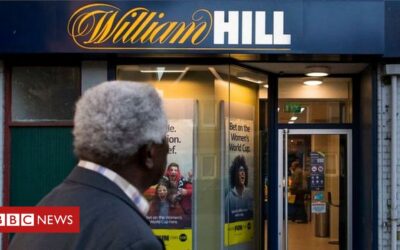UK house prices rose by 5% in September compared with a year ago, the Nationwide says, as the property market saw post-lockdown demand continue.The annual rate of growth is the highest for four years, according to figures based on the Nationwide’s lending data.The building society said activity had “recovered strongly” since coronavirus restrictions on viewings were lifted. But job fears ahead mean many young people have put moving plans on hold.Price rises across regionsThe Nationwide said that UK house prices rose by 0.9% in September compared with August.In the three months from July to the end of September, UK prices were up 1.7% compared with the previous quarter and the average home cost £226,129. Prices rose on a quarterly basis in most areas of the UK, the building society said.”The rebound reflects a number of factors. Pent-up demand is coming through, with decisions taken to move before lockdown now progressing,” said Robert Gardner, Nationwide’s chief economist.He said the temporary stamp duty holiday, which means no tax is levied on the first £500,000 of all property sales in England and Northern Ireland until the end of March, was “adding to momentum” by bringing purchases forward. “Behavioural shifts may also be boosting activity as people reassess their housing needs and preferences as a result of life in lockdown,” Mr Gardner added.
Media playback is unsupported on your device
However, the Nationwide has joined other commentators in warning of the medium-term impact of the pandemic on the housing market.Lucy Pendleton, from independent estate agents James Pendleton said: “[House price growth] can’t continue forever, and it is very likely indeed that we won’t see a higher annual growth rate this year.” Movers ‘more likely to buy than first-time buyers’
First-time buyers: Four ways the property market ‘will be tougher’
The Nationwide’s Mr Gardner said younger people were much more likely to have put off plans than older people, reflecting concerns about job prospects, particularly as government wage support becomes less generous.Potential first-time buyers have also found it difficult to secure a mortgage when they are unable to offer a large deposit, as lenders take a safety-first approach fearing defaults as finances are squeezed.
Your results
–
Amount of the United Kingdom that has housing you can afford
Range of affordable areas includes:
Armagh City, Banbridge and Craigavon and Belfast
No affordable areas
Search the UK for more details about a local area
low (£)
high (£££)
Affordable
Unaffordable
You have a big enough deposit and your monthly payments are high enough.
The prices are based on the local market. If there are 100 properties of the right size in an area and they are placed in price order with the cheapest first, the “low-end” of the market will be the 25th property, “mid-priced” is the 50th and “high-end” will be the 75th.










